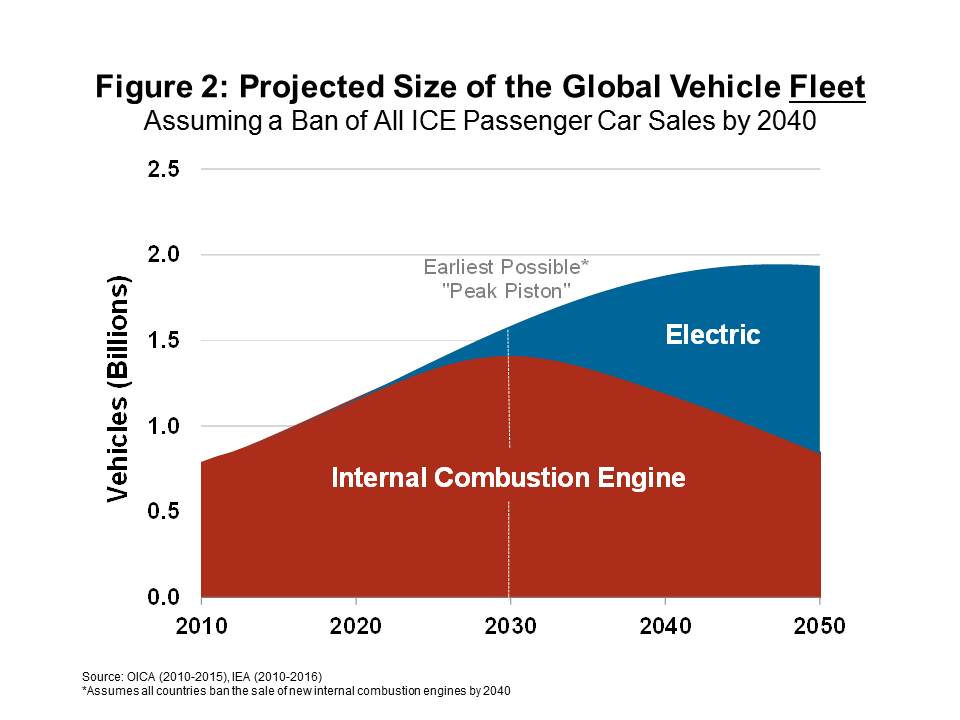Here is an interesting piece by Peter Tertzakian of Arc Energy in Calgary. Peter is a very thoughtful expert on all types of energy and has published a couple of interesting books. Despite working for an "oil" company Peter has very progressive thoughts and I believe he drives a Model X.
The gist of this story is that there will still be a ton of ICE vehicles on the road in 2050, even if ICE cars are no longer sold/made after 2040 and assuming pretty fast adoption of EVs. The reason for that is that only 3-4% of cars are retired every year so we will keep seeing the global fleet of ICE vehicles increase for a long time.
Commentary – Old Pistons Die Hard | ARC ENERGY RESEARCH INSTITUTE

The gist of this story is that there will still be a ton of ICE vehicles on the road in 2050, even if ICE cars are no longer sold/made after 2040 and assuming pretty fast adoption of EVs. The reason for that is that only 3-4% of cars are retired every year so we will keep seeing the global fleet of ICE vehicles increase for a long time.
Commentary – Old Pistons Die Hard | ARC ENERGY RESEARCH INSTITUTE



